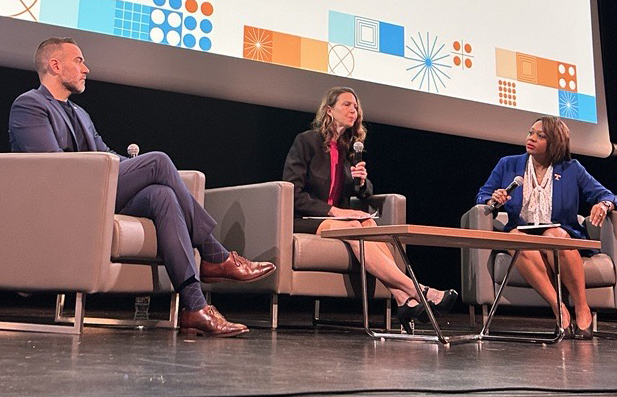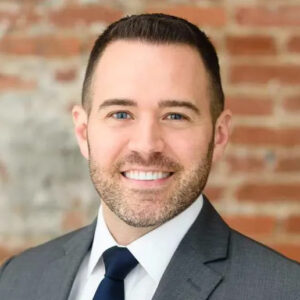
The final day of the annual Student Success US Conference kicked off with a keynote discussion moderated by Vice Provost for Student Success Amber Williams.
The session, “The State of Higher Education: Adapting to Evolving Barriers to Success,” examined findings from a study conducted by the Lumina Foundation and Gallup titled “State of Higher Education.” The study measures “the attitude of U.S. adults without a college degree toward education beyond high school.”
Dr. Williams led the discussion between Lumina Foundation’s Courtney Brown and Gallup Chief Executive Officer Jon Clifton, covering how to raise the perceived value of a college degree, alternative credentials, adapting programs for flexibility, and supporting students to decrease academic dropouts. 
Referenced during the session, the report detailed the opinions of those at different points in their educational journey held toward higher education. Brown and Clifton noted the key findings: continual increase in emotional stress among responders, emotional stress as a cause for student dropout rates, and credentials (accreditation, certifications) continue to be seen as a valuable career asset.
As the panel noted, despite the positive perception surrounding obtaining credentials, the confidence in higher education as a source for obtaining those has dramatically declined.
“They want the credentials,” said Brown, “but they don’t believe the systems can deliver that.”
As confidence has waned, the panelists identified a potential cause that reflects an adapting landscape: the new student. Brown framed the current student as someone with more responsibilities on their shoulders than previous generations, spending more time reflecting on what is necessary and relevant for their success. 
Clifton expanded on that sentiment, adding that the new student’s concern with increasing responsibilities related to finances, including student debt and general affordability, have created a greater disconnect between attending college and successful adulthood.
As those in higher education begin to consider ways to adapt their programs to better serve the student, the panelists agreed the most important step is to listen.
“‘Intentionality’ is the idea of ‘listen more,'” said Clifton.
The panel pointed out that messaging about higher education and its benefits have remain unchanged, leading the public to believe their concerns are not being heard and that reaffirming the commitment to helping students succeed and taking the steps to do so will help better support students
“It is our responsibility to listen. It is our responsibility to act,” said Dr. Williams. “Confidence is waning. It is our responsibility to bring that back up.”